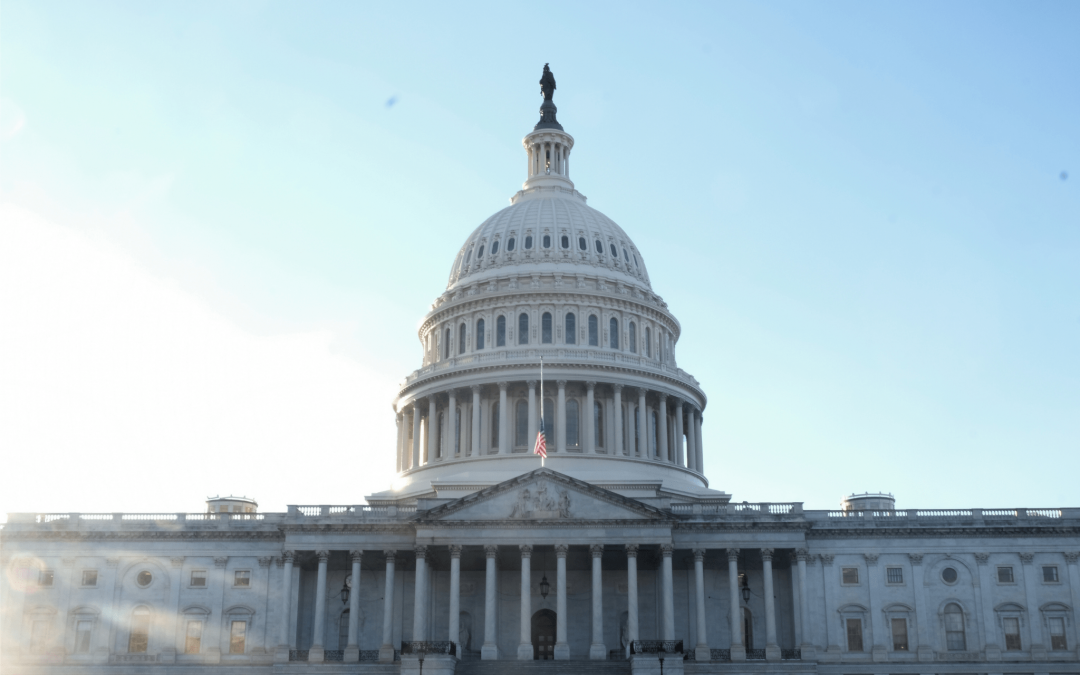WASHINGTON — Democrats probed inspector general nominees about their partisan connections at a confirmation hearing on Wednesday.
Thomas March Bell, President Donald Trump’s pick to be the Inspector General for the Department of Health and Human Services, serves as the general counsel for House Republicans and has worked for GOP politicians for decades, fueling concern over his fitness to serve in an oversight role.
“As the administration continues to undermine independent oversight bodies, it’s more important now than ever that we have qualified, nonpartisan individuals to serve in these roles,” said Sen. Gary Peters (D-Mich.). “Given Mr. Bell’s highly partisan record, I am concerned that he will instead use the IG’s office to pursue political aims.”
Peters went on to list Bell’s partisan pursuits, including his alleged role in limiting women’s access to reproductive care as chief of staff of HHS’ Office of Civil Rights during Trump’s first term.
Bell largely shook off these concerns, insisting that his work for political campaigns was distinct from his work in congressional oversight.
“My record speaks for itself,” Bell said. “Just because a product offended some interest of some group does not mean it didn’t follow the highest standards of investigations.”
Bell’s nomination previously went before the Senate Finance Committee in October, where Democrats voiced similar worries. They penned a letter urging the chairman of the committee to table Bell’s nomination, arguing Bell had been nominated to fill a position that was not vacant.
Mere days into his second term, Trump began a widespread firing of inspectors general across multiple federal agencies, including HHS IG Christi Grimm.
These inspectors general were notified of their dismissal in an email from the White House Office of Presidential Personnel, which cited “changing priorities” as the reason for their firings.
Critics say that these firings violate the 1978 Inspector General Act and a 2022 amendment that requires presidents to give a “substantive rationale” for removing IGs. In September, a federal judge agreed, ruling that these firings were illegal while declining to reinstate the fired officials.
Still, these guardrails are intended to preserve the political independence of inspectors general, who serve as internal watchdogs conducting investigations to prevent waste, fraud and abuse inside federal agencies. Without those protections, experts and lawmakers warn that the oversight system becomes vulnerable to political pressure.
Kathryn Newcomer, a professor at George Washington University, cautioned that the dismissals could lead to a “very unfortunate chilling effect” in the aggressiveness of investigations into federal actions.
“There is a concern that the agencies be in line with Trump policies across the board, but that is not appropriate,” Newcomer said. “These are supposed to be independent of political influence or partisan influence to just simply ensure accountability within the executive branch — accountability to the law.”
Some Democratic lawmakers, including Sen. Richard Blumenthal (D-Conn.), have since introduced legislation designed to reinforce the independence of IGs across the federal government.
In an October statement explaining the proposed act, Blumenthal lamented the “draconian firings” of inspectors general.
“As the principal federal watchdogs against fraud and abuse — now trademarks of this Administration — their independence urgently needs these protections,” Blumenthal said. “They must be real watchdogs, not lapdogs.”
On Wednesday, Blumenthal and other committee Democrats pressed Bell as to whether he would defy direct orders from Trump.
Peters asked whether Bell would stand up to the president if asked to drop an investigation. Bell dodged the question.
“I don’t have any experience in my time in the previous administration, nor do I know anyone who’s served in that administration or this one, who’s been asked by the president to do anything that’s unethical or illegal,” Bell said. “I don’t believe he would do that.”

